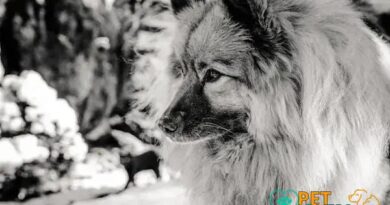O que é canine heritage
What is Canine Heritage?
Canine heritage refers to the ancestral lineage and genetic background of dogs, encompassing their evolution, breed characteristics, and historical significance. Understanding canine heritage is crucial for dog owners and enthusiasts alike, as it provides insights into the behavior, health, and temperament of various breeds. This concept not only highlights the diversity among dog breeds but also emphasizes the importance of responsible breeding practices that honor this rich history.
The Importance of Canine Heritage
Recognizing the importance of canine heritage allows dog owners to appreciate the unique traits that different breeds possess. Each breed has been developed for specific purposes, such as herding, hunting, or companionship, which are deeply rooted in their heritage. By understanding these traits, owners can make informed decisions about training, care, and lifestyle choices that align with their dog’s innate characteristics, ultimately leading to a more harmonious relationship.
Genetic Diversity and Canine Heritage
Genetic diversity is a key component of canine heritage, influencing the overall health and vitality of dog breeds. A diverse gene pool can help prevent hereditary diseases and promote robust health in dogs. Breeders who prioritize genetic diversity contribute to the preservation of canine heritage, ensuring that future generations of dogs maintain the qualities that make them unique. This focus on genetic health is vital for the sustainability of various breeds.
Canine Heritage and Breed Characteristics
Each dog breed carries specific characteristics that are a direct result of its heritage. For example, working breeds like the German Shepherd are known for their intelligence and trainability, while toy breeds such as the Chihuahua are often characterized by their small size and affectionate nature. Understanding these breed-specific traits helps owners tailor their training and care approaches, fostering a better environment for their pets.
The Role of History in Canine Heritage
The history of dogs is intertwined with human civilization, and this relationship has shaped canine heritage over thousands of years. From ancient hunting companions to modern-day service animals, dogs have played various roles in society. This historical context enriches our understanding of canine heritage, illustrating how breeds have adapted to meet human needs and how these adaptations have influenced their behavior and characteristics.
Preserving Canine Heritage
Preserving canine heritage involves not only maintaining breed standards but also promoting ethical breeding practices. Responsible breeders focus on the health and well-being of their dogs, ensuring that they are bred for temperament and genetic soundness rather than merely for appearance. This commitment to preservation helps safeguard the future of dog breeds and honors their historical significance.
Canine Heritage and Behavioral Traits
Behavioral traits are often linked to a dog’s heritage, influencing how they interact with humans and other animals. For instance, herding breeds may exhibit strong instincts to herd, while terriers may display a high prey drive. Understanding these behavioral traits through the lens of canine heritage can help owners manage their dogs’ behaviors effectively, leading to a more fulfilling companionship.
Impact of Canine Heritage on Training
Training methods can be significantly impacted by a dog’s heritage. Different breeds may respond better to specific training techniques based on their historical roles and inherent traits. For example, working breeds often thrive on tasks that engage their intelligence and physical abilities, while companion breeds may respond well to positive reinforcement and socialization. Tailoring training approaches to align with a dog’s heritage can enhance learning and strengthen the bond between dog and owner.
Canine Heritage and Health Considerations
Health considerations are closely tied to canine heritage, as certain breeds are predisposed to specific health issues due to their genetic background. Understanding these predispositions allows owners to take proactive measures in their dog’s care, including regular veterinary check-ups and tailored nutrition. By being aware of their dog’s heritage, owners can better anticipate potential health challenges and provide appropriate preventive care.
The Future of Canine Heritage
The future of canine heritage is shaped by ongoing research and advancements in genetics. As we learn more about the genetic makeup of different breeds, we can make informed decisions about breeding practices and health management. This knowledge not only helps preserve the unique traits of each breed but also fosters a deeper appreciation for the rich history and diversity within the canine world.



